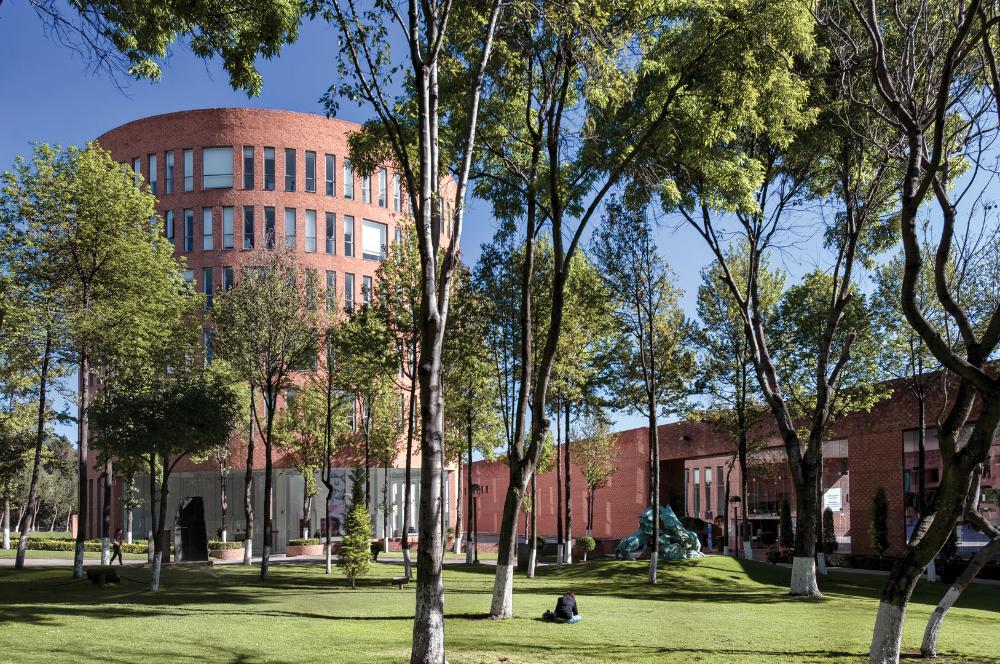GGC International Migration in Mexico
Mexico City, Mexico

About the Program
Study international migration with a focus on migration and immigration in the Central America-Mexico-USA region! On this summer trip, you will deepen your knowledge about migration in a globalized world as you live with host families and visit several migration centers and cultural sites in Mexico City.
Undoubtedly, international migration (IM) occupies a predominant place in today’s globalized world. Understanding the different sides of IM will place students in a very good position to comprehend other ingredients of globalization, including other cultures, international trade and economy, etc.
This program will give students the opportunity to infuse an international, cultural perspective into their degree programs by studying international migration with special attention paid to the region of Central America – Mexico – United States of North America.
Taught at the Universidad Iberoamericana, Mexico City campus, the courses will be imparted by two instructors, one from the Universidad Iberoamericana (IBERO) and the other one from Georgia Gwinnett College. After finishing the program successfully, students will be able to apply or utilize the knowledge and intellectual skillset that they have grasped in the program to navigate our globalized society, specifically by focusing on international migration issues, particularly as they take place in the Central America-USA region.
In addition, students will have the incredible opportunity to take their learning outside of the classroom and experience it within the host Mexican culture, as they will be living with host families and visiting several migration centers and cultural sites. Living with host families will be an enriching cultural exchange. Visiting the migration centers will give students the opportunity to meet some migrants and learn about their experiences, opinions, and attitudes. Finally, touring cultural sites will allow students to obtain a broader understanding of Mexico’s culture and history.
Course Information
This is a month-long GGC faculty-led study abroad program that allows the participating students to earn the following GGC credits:
POLS 4220: Special Topics in Comparative Politics: Central America and Mexico - USA Migration (3 CREDITS)
The course will cover anthropological, political, and sociological theories of human mobility. An important practical, experimental component of the course is a set of visits to migration sites and to historical-cultural places. This will give us the opportunity to better understand the human immigration and/or migration in the region and its culture. The student will also benefit from scholarly research by Universidad Iberoamericana faculty, who will offer guest lectures on their recent migration-related research being in line with the topic of the class and/or the week.
POLS 4240: Special Topics in International Relations: Immigration Policy and Politics of Migration: Central America and Mexico - USA Region (3 CREDITS)
In 2018, several migrant caravans from Central America forced their way into Mexico through the Guatemala border. Since then, migrants coming from the Northern Triangle of Central America (Honduras, El Salvador, and Guatemala) have organized in large groups to cross Mexico. However, this migratory stream is not new. Since several decades, thousands of Central Americans take ‘la Bestia’ daily, with the same purpose: reaching USA. In this course, we will examine both the im/migration policies of Central America, Mexico, and the US governments and the political dynamics where such policies originate. For this purpose, we will examine the international migration regime first. This will guide us to analyze the current Central American-Mexico-USA migration regime. An important practical, experimental component of the course is a set of visits to migration sites and historical-cultural places. This will give us the opportunity to better understand the human immigration and/or migration in the region and its culture. Several scholars from the Uni. Iberoamericana will offer guest lectures on their recent migration-related research that may be related to the topic of the class and/or the week.
Dates
This is a summer program that takes place between May 27 and June 26, 2024.
Location
This program will take place in Mexico City, Mexico and its surrounding areas.
Itinerary*
Pre-Departure Meetings (May 24): Interactive, reflective dialogues and Q&A sessions about Mexican traditions and traveling in Mexico City.
Day 1 (May 27): Travel to Mexico City.
Days 2-4 (May 28 - 30): Visit Ibero campus and orientation.
Day 5 (May 31): Visit to a migration center and conduct interviews.
Day 6 (June 1): Visit Teotihuacan (a historical and cultural site).
Day 7 (June 2): Student free time.
Days 8-11 (June 3-6): Class meetings.
Day 12 (June 7): Visit to a migration center and conduct interviews.
Day 13 (June 8): Visit El Zocalo Capitalino (a historical and cultural site).
Day 14 (June 9): Student free time.
Days 15-18 (June 10-13): Class meetings. |
Day 19 (June 14): Visit to a migration center and conduct interviews.
Day 20 (June 15): Visit to Museo Nacional de Antropologia e Historia (INAH).
Day 21 (June 16): Student free time.
Days 22-25 (June 17-20): Class meetings.
Day 26 (June 21): Visit to a migration center and conduct interviews.
Day 27 (June 22): Visit Los Pinos (a historical and cultural site).
Day 28 (June 23): Student free time.
Day 29 & 30 (June 24-25): Final reports and presentations
Day 31 (June 26): Travel back to Atlanta. |
*subject to change
Cost & Payment
PROGRAM COST: $ 1,719
**Please make note all payments are non-refundable upon receipt unless GGC cancels the study abroad program. GGC tuition and fees are NOT included. Those most be paid before departure and must meet GGC deadlines for tuition and fee payments.
What's included?
- Airfare
- Room and board
- Excursions and activities
- International health insurance
- Ground transportation
- Taxes and airport fees
|
What's not included?
- GGC tuition & fees
- Some meals
- Passport fees
- Personal expenses (e.g., shopping, personal trips, etc.)
- Unexpected incidents
|
Payment Schedule
For installment payments:
| Payment |
Due Date |
Amount |
| First Payment |
Dec. 22, 2023 |
$500 |
| Second Payment |
January 19, 2024 |
$500 |
| Third Payment |
April 19, 2024 |
$719 |
For full payment:
| Due Date |
Amount |
| January 19, 2024 |
$1,719 |
Deadline
The deadline to apply for this program is March 31, 2024.
Contact
For more information, please contact the program directors, Dr. Quinones-Reyes and Dr. Hijar, or the Office of Internationalization:
- Program Directors: Dr. Clemente Quinones-Reyes - (678) 777-1265 - cquinone@ggc.edu & Dr. Andres Hijar - ahijar@ggc.edu
- Program Specialist: Moriah King - (678) 407-5597 - internationalization@ggc.edu
